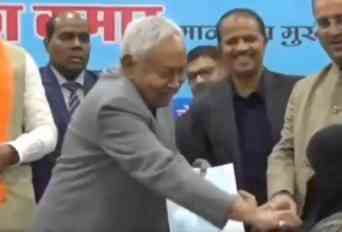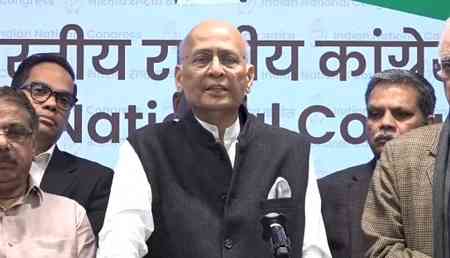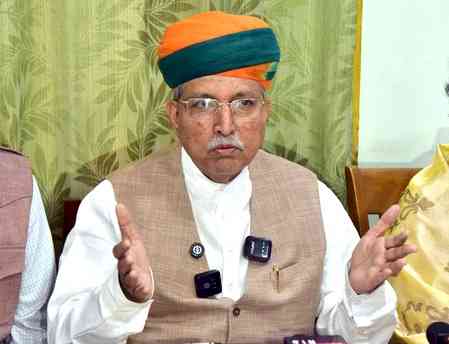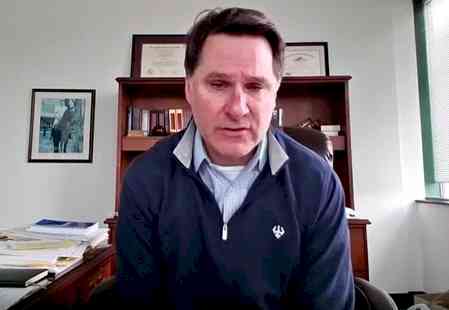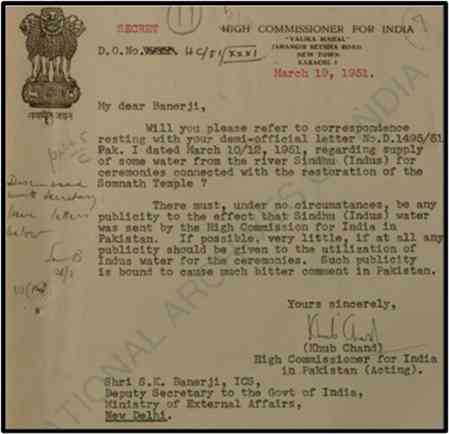Gaurav Sawant talks about Captain Vikram Batra’s bravery at Sahitya AajTak 2022
India Today Senior Executive Editor Shiv Aroor, Managing Editor Gaurav Sawant and Defence and Military Affairs journalist and author Rahul Singh shared not just their experiences on the battleground while reporting from some precarious situations, but they also talked about the soldiers and officers, their stories of bravado and also the families who form an important support system in their lives.
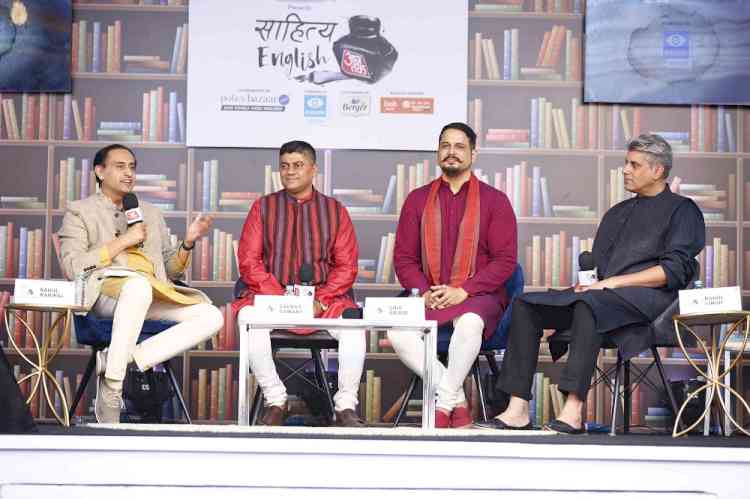
You have seen several journalists report live from war zones. Some have also penned their experiences of covering these wars in books that give vivid information about the challenges they have faced. India Today Senior Executive Editor Shiv Aroor, Managing Editor Gaurav Sawant and Defence and Military Affairs journalist and author Rahul Singh shared not just their experiences on the battleground while reporting from some precarious situations, but they also talked about the soldiers and officers, their stories of bravado and also the families who form an important support system in their lives. The journalists were speaking at Sahitya AajTak in a session titled India's Most Fearless.
Here are excerpts from the interview:
WHAT MAKES A SOLDIER FEARLESS?
Has it ever occurred to you how can these army officers and soldiers face the most daunting situations with the utmost bravery? So, what makes them so fearless? This is what Gaurav Sawant had to say, “It’s the attitude that they are born with, or it’s the attitude that comes to them when they are in that situation that makes them fearless. When someone is in that situation, they can either become a hero or a coward.
Talking about our military heroes’ attitude, Shiv Aroor pointed out a common attitude in almost everybody. “It’s actually amazing how common the attitude of all military heroes is. One would expect that, given the kind of superhuman things they have achieved, they would have a chip on their shoulder or an air about them. I found these absolutely unbelievable common points among all the heroes to whom I spoke to. I will give two examples, one is the Galwan incident (a soldier called Dharamveer who survived) and the other is the Major who led the Uri Surgical Strikes. This soldier and the officer precisely said the same thing when I asked them ‘what is it that made you so brave in those circumstances?’ Their identical answer was – ‘anyone would have done the same thing in that situation, we just happened to be in it. Fate dictated that we would be in that place and we had to decide. But, anyone else in the fauj would have acted in the same manner.’ They were totally discounting their uniqueness. They were basically saying that we in the fauj are built to be brave and only some of us get to be in those situations where we got to do something big and there is no decision for us because failure is not an option,” he said.
“There are two aspects that stand out. One is the sense of purpose and the other is ‘I will make my training count.’ This is what distinguishes these heroes,” Rahul Singh said talking about the soldiers’ bravery.
THE COURAGE OF THE FAMILY
Family plays a very important part in a soldier’s life. Some wives have even signed up for army after the death of their husbands. Talking about these brave women, Shiv Aroor said, “There are five occasions across our three books in which officers and soldiers had lost their lives and their wives have given up a pretty stable life just to sign up for the army. We have spoken to these army ladies and asked what was the need for them to sign up for the army. Once the media spotlight over the death of a soldier or officer evaporates the unit stays in touch with the families and they are there to provide any kind of help. I think that kind of fuels a sense of purpose in them. They kind of feel that the only way to keep the legacy of their husbands alive or complete an incomplete mission in case of a young officer or soldier is to join the army. It may seem irrational, but they have got an absolutely razor-sharp sense of purpose.”
“Even as we speak the Army is launching hundreds of operations in the mountains of Kashmir or the jungles of the northeast. Most of these soldiers who go out on all these missions have a quick WhatsApp call with their families. Imagine the anxiety when you see that the last seen message was almost three or four days ago! You can’t even get through their number. This can be very overwhelming. These families are very inspiring and when you speak to them, they show great fortitude,” Rahul Singh added.
YEH DIL MANGE MORE
Talking about Captain Vikram Batra and his bravado, Gaurav Sawant said, “5140 was the peak that Captain Vikram Batra had won and this was one of the initial victories in Kargil and a very difficult one. The entire country knew about the Captain’s slogan – ye dil mange more. In that operation, because they were exposed to the harsh weather since they had given up their woollens just to scale the mountains, Captain Batra had fever. He was supposed to go to RNR (rest and recuperation) but he heard on the wireless that the two teams that had gone for Point 4875 (which later came to be known as Batra Top) couldn’t reach the top. The Pakistan army had their guns so effectively deployed that every advance was being pushed back and casualties were happening. So, this is the time he volunteered. General YK Joshi kept telling him ‘you need to rest’, but he said ‘I am the only one who can do it’. He went up despite the fever and he actually did what he said. “


 City Air News
City Air News 
